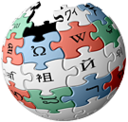Gemini1980
| Köszöntünk a magyar Wikipédiában, kedves Gemini1980! | |||
|
A Wikipédia szerkesztésének fortélyaihoz az első lépések oldalon találsz bevezetőt. A szerkesztést a homokozóban gyakorolhatod. A Wikipédiában folyó társalgások jobb megértéséhez a wikifogalmak és rövidítések (szó)jegyzékében találsz segítséget. Kérjük, különösen ügyelj a felküldött szövegek és képek jogtisztaságára és forrásaid pontos megjelölésére! Kezdő szerkesztőként személyes segítőt, mentort is kaphatsz magad mellé, vele megtárgyalhatod a szerkesztéssel kapcsolatos problémáidat. Ehhez jelentkezz be (ha eddig nem tetted volna), és kattints ide! Bonyolultabb szerkesztési ügyekben a kocsmafalra írhatsz kérdéseket, ha egy szerkesztőtársad tudja a választ, ugyanott fog válaszolni. Egy közismereti tudakozót is működtetünk, ha valamit nem találtál. Ha van kedved, írhatsz magadról pár szót a szerkesztői lapodon, melynek kialakításához segítséget itt találsz. (Itt írhatsz például érdeklődési körödről, nyelvtudásodról). A személyes vitalapokat üzenőfalként használjuk, ezen üdvözlet is példa rá. Kérünk, hogy a vitalapokon így írd alá hozzászólásaidat: ~~~~. Jó szerkesztést és tartalmas szórakozást kívánunk! If you don't speak Hungarian, please click here. | |||
Go
szerkesztésSzia! Miért törölted ki a Go cikkből a francia kiemelt jelzést? – Zimmy mondj el mindent 2008. szeptember 12., 08:16 (CEST)
OK, I see. When I checked the French Go page, it holded the star yet. Thanks, best wishes – Zimmy mondj el mindent 2008. szeptember 22., 00:51 (CEST)
Invitation to Medical Translation
szerkesztésMedical Translation Project
| Invitation to the Medical Translation Project – a joint Wikimedia project started by the English language WikiProject Medicine! Thank you for being one of the top Medical editors! I want to use this opportunity to introduce you to our most ambitious project. We want to use Wikipedia to spread knowledge where it will be used. Studies have shown that Wikipedia is the most common resource of medical knowledge, and used by more people than any other source! We want high quality articles, available to everyone, regardless of language ability. It isn't right that you would need to know a major language to get hold of quality content! That is why in the recent Ebola crisis (which is still ongoing) we translated information into over 70 languages, many of them small African languages. This was important, as Wikipedia was also shown to be the biggest resource used in Africa for information on Ebola! We see tremendous potential, but also great risks as our information needs to be accurate and well-researched. We only translate articles that have been reviewed by medical doctors and experts, so that what we translate is correct. Many of our translators are professionals, but many are also volunteers, and we need more of you guys – both to translate, but also to import finished translations, and fix grammatical or other style issues that are introduced by the translation process. Our articles are not only translated into small languages, but also to larger ones, but as of 2015 this requires users to apply for an article to be translated, which can be done here (full articles, short articles) with an easy to manage google document. So regardless of your background head over to our main page for more information, or to our talk page and ask us questions. Feel free to respond in any language, we will do our best to find some way to communicate. No task is too small, and we need everyone to help out!
Thank you for helping medical information on Wikipedia grow! -- CFCF 🍌 (email) 15:37, 28 January 2015 (UTC) |
